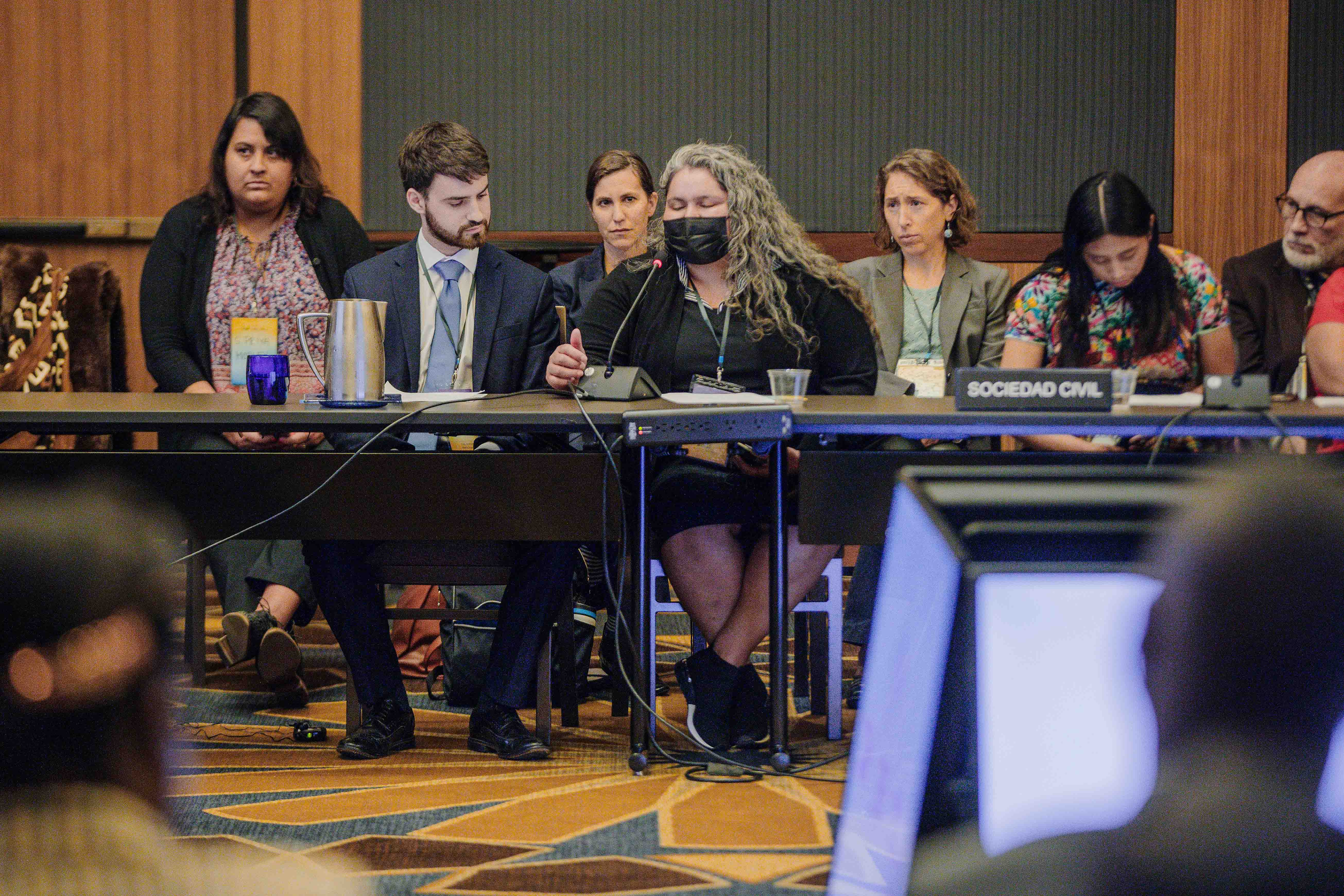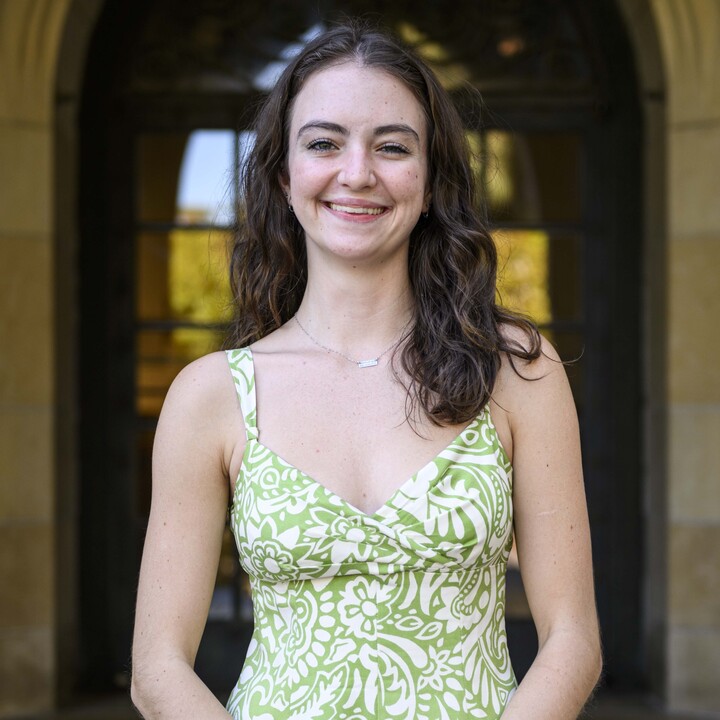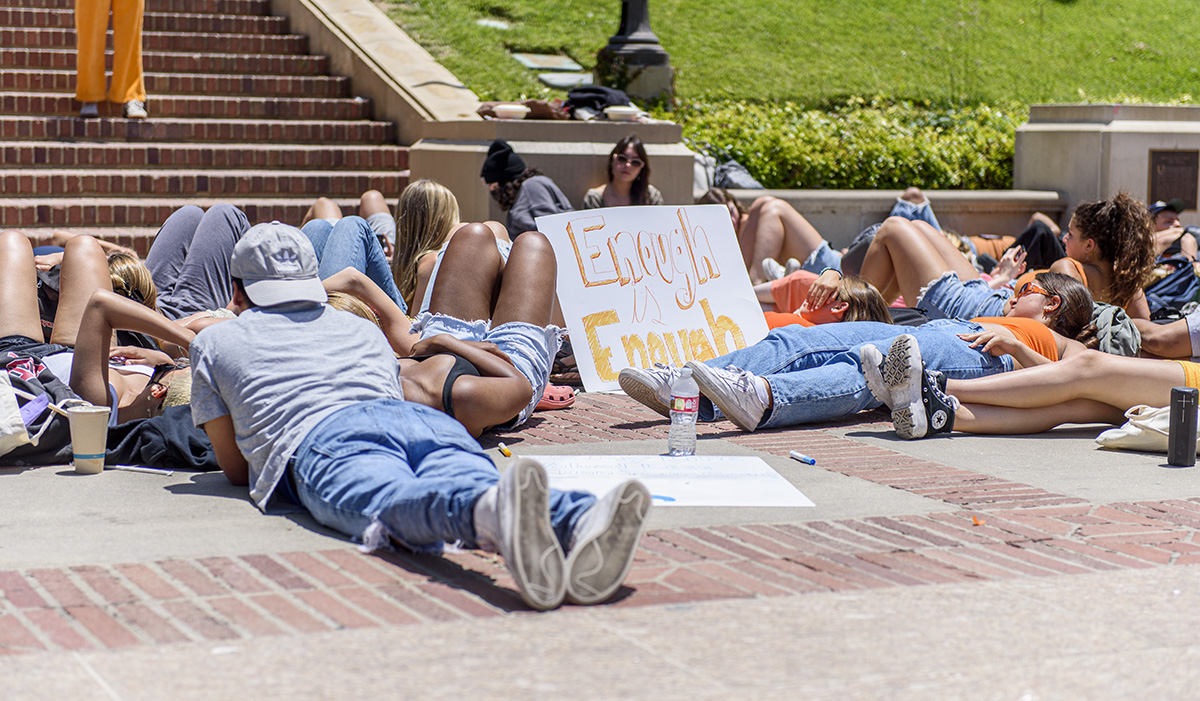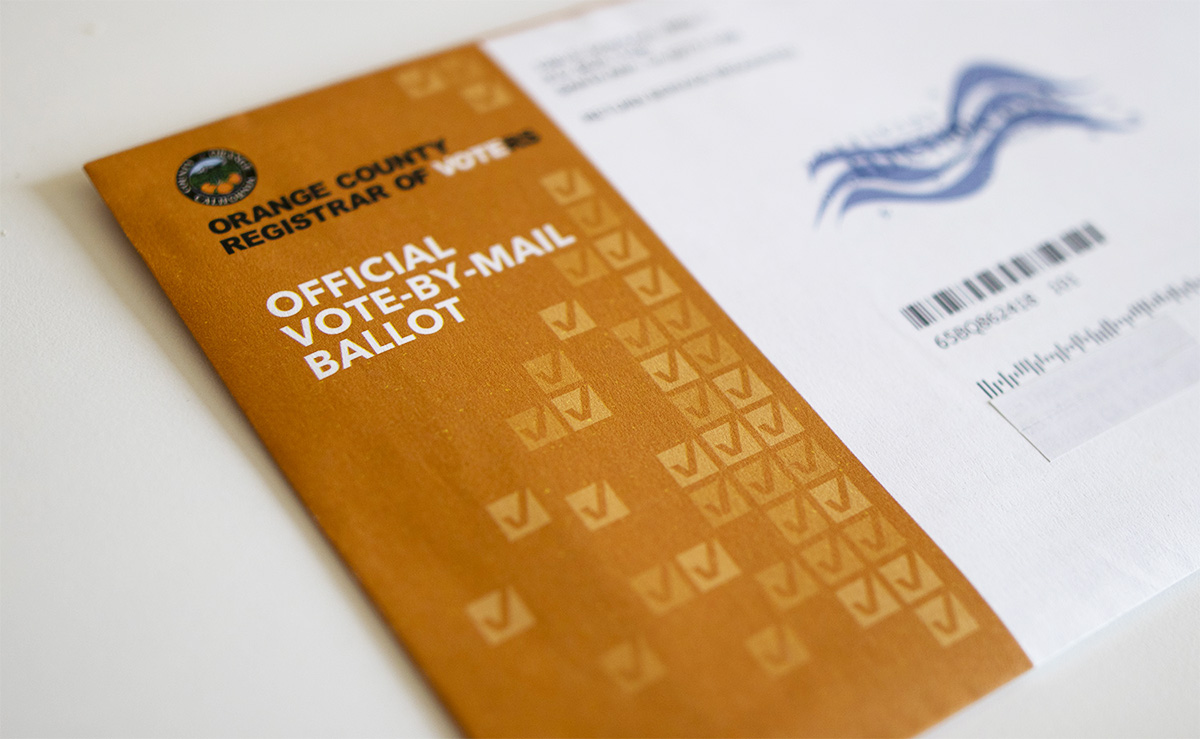Immigrants’ Rights Policy Clinic confronts structural racism in US immigration law

A photo of members of the Immigrants’ Rights Policy Clinic testifying at the Inter-American Commission on Human Rights hearing on race and migration. (Courtesy of Bryan Giardinelli)

By Catherine Hamilton
June 11, 2023 8:32 p.m.
The Immigrants’ Rights Policy Clinic at the UCLA School of Law is fighting the racist history of United States immigration law.
The clinic provides law students with the chance to gain experience with immigration law and policy through research and advocacy opportunities, as well as through work with community organizations, said Talia Inlender, the Center for Immigration Law and Policy’s deputy director. Affiliated members of the clinic testified before the Inter-American Commission on Human Rights hearing on race and migration on March 7. Partnering with the Center for Immigration Law and Policy at UCLA, as well as UCLA’s Promise Institute for Human Rights and other organizations, these members advocated for the reevaluation of certain federal immigration policies.
According to the Organization of American States website, the commission aims to protect human rights in the Americas by holding hearings to discuss pressing issues.
Three law students from the clinic – Ilina Bhor, Sareen Khakh and Isaac Selwyn – prepared for the hearing, working with co-supervisors Inlender and Astghik Hairapetian, a legal fellow with CILP.
One of the Immigrant Family Legal Clinic’s clients also spoke at the hearing to share how she has been impacted by federal reentry laws. Inlender said these laws – which are a main focus of the clinic’s work – effectively criminalize migration, especially from Latin America. In front of the commission, the clinic argued that federal reentry laws violate the Inter-American legal system.
“What we were really trying to do with the hearing was to show how racism impacts migrants at every stage of their journey through the Americas,” Inlender said.
Bhor, Khakh and Selwyn researched U.S. domestic law and the standards and procedures of the commission in preparation for the hearing, said Selwyn, who recently graduated from the masters in law program and testified on behalf of the clinic at the hearing. He added that they specifically focused on the entry and reentry laws in the U.S. Code.
Both Khakh, a second-year law student, and Selwyn said the commissioners appeared to have a positive reaction to their testimony, though no significant new action has been taken yet following the hearing.
“I felt quite relieved that they seem to care about the issues,” Selwyn said. “At the same time, it’s obviously not clear what’s going to happen as a result because they’ve not released any reports.”
Inlender added that the clinic’s argument that federal reentry laws contravene the Inter-American jurisprudence – which aims to protect and address human rights across the Americas – is a new one. Hairapetian said she thinks this could be because immigration is not always a main focus of human rights dialogue in the U.S. and because the U.S. is sparsely involved in the Inter-American system.
“The human rights discourse is, I think, more common outside of the U.S., and so we don’t always draw that connection,” she said. “The advocacy that’s done in that realm (of immigration) is not always, or rather rarely, thought about in terms of human rights.”
The clinic has also participated in other projects looking into potentially racist histories of immigration law. Hairapetian said that research into criminal convictions leading to deportation or denial of admission to the U.S. showed some policies tend to especially target Asian people and Pacific Islanders.
While the clinic works toward researching and dismantling the racist history of immigration laws, the students also discussed the importance of public advocacy in immigration debates.
Khakh said she feels it is important to raise awareness of court cases and testimonies in order to hold the government accountable for human rights violations in the U.S.
Inlender also said that she feels there is a responsibility to reveal and address structural racism and its history in the U.S. Selwyn added that there are many opportunities to make changes to the current legal system and advance social justice.
“People shouldn’t settle for feeling like this is how it always has been and how it always will be because societies can change,” Selwyn said. “And as we’ve shown, the current system isn’t working, and there’s a better way to do it.”






